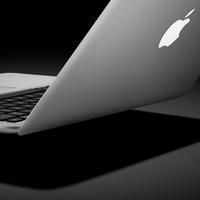Is Apple under attack from a whisper campaign?


Here's the background: Believe it or not, I associate with people who don't use Macs and have never used Macs. And I don't hold this against them. (For the record, my first PC at work was the DOS-based IBM XT and I've worked my way though Windows 95 and XP on PCs that I've owned. Now, I can run Parallels on my Intel-based Mac, so the world is much brighter place than before.)
The other day, I happened to be talking to an executive at a technology company who fits this profile. He's never owned a Mac and for all that I know, never even used one. He may not use an iPod! His company doesn't support Apple hardware and never will. He bleeds Windows.
He knows about my Mac connection and in the course of our conversation, I mentioned that I had seen the new MacBook Air and how impressed I was with it.
He then asked me about something he had heard about Apple. The gist was that while Apple products had great design, they were of poor quality. In other words, Apple makes products that look good, but break easily or don't hold their value.
This was a very strange comment, so odd that it took me aback for a moment. Mac owners know, as well as those who have considered purchasing a Mac, that Apple has a topnotch reputation for industrial design and reliability. Consumer Reports and other media outlets mention this fact on a yearly basis.
For example, the results of the annual fall Rescuecom.com http://www.rescuecom.com/ reliability survey released in late October put Apple at the top of the list. The report showed that Apple's "Reliability Score" beat Lenovo by more than 100 points. This survey was based on a sample of 46,000 repair calls.
These support calls were mostly for business customers and unassociated with a sales organization. According to Rescuecom.com CEO David Milman: "Because of our independence and large and diversified customer base, we can provide an objective and unbiased rating of computer hardware reliability based on real-world experience."
Meanwhile, in last summer's Macworld magazine's State of the Mac reliability survey, 85 percent of responders who use the Mac as their primary computer gave the Mac an "A" grade for satisfaction, even while 25 percent of them had a "serious problem" with the machine, enough to knock the machine out of action for a day or more.
Macworld Executive Editor Dan Miller wrote in his introduction to the survey:
So, roughly 25 percent of those machines had a problem, yet 85 percent of them rate a 9 or 10 for satisfaction. Does that make sense? After looking at the numbers more closely, I think it does.For one thing, many of the Macs that had problems were bought four, five, even six years ago. I don’t think it’s surprising that computer components that old occasionally go south.
More importantly, when those problems did arise, they were fixed quickly and well. Whether they took their ailing Macs to local Apple Stores or another local Apple service provider (or shipped them to Apple) for service, survey respondents whose Macs had problems said they were extremely satisfied with the promptness and thoroughness of the service they received.
I would say that while everyone appreciates the industrial design and the feel of Apple's products, the quality of QA is essential to the execution Apple's sales and support strategy, especially now with the company's increasing reliance on retail.
On Page 1 of its annual 10-K report, Apple describes its business strategy for the retail stores:
The Company's strategy also includes expanding its distribution network to effectively reach more of its targeted customers and provide them with a high-quality sales and post-sales support experience.
But this strategy won't work at all if the reliability of products is poor. If the stores are clogged with angry, unsatisfied customers, the high-quality, low-key sales pitch becomes a problem.
Likewise, the Genius Bar onsite support service in the retail stores can only work if Apple's QA is excellent. Quality hardware and software keep the wait time down and reasonable. If not, then the Apple Store would resemble the failed Gateway Country retail stores.
This isn't to say that Apple doesn't have its design problems and QA mishaps, such as flaming notebooks, defective hardware and poor production runs. Or problem software releases. Yet, while customers have screamed at times, for the most part, the company's been able to overcome QA issues.
So, where did this notion of Apple's lack of quality come from. My buddy said he "heard" from someone. He didn't make it up.
Being so false, it has the ring of a rumor campaign to me. The best candidate to receive the rumor would be someone who hasn't used a Mac client machine. I can see how it may spread in in enterprise IT departments or within companies receiving pitches for technology adoptions where switchers are starting to be seen.
And the MacBook Air is a good target for such a campaign. It's not the machine that will appeal to the IT crowd, who value performance and a checklist of slots and interfaces.
The only good news about this latest whisper campaign is that it's a different message than the ones floated 10 years ago. They came out as more of a shout rather than a whisper with the word that Apple was dead. Wrong then, wrong now.